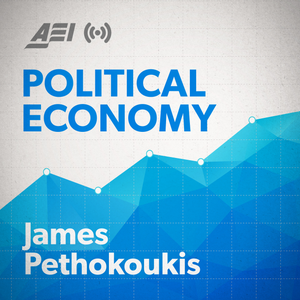
Political Economy with Jim Pethokoukis
American Enterprise Institute
Get the latest from James Pethokoukis
- 25 minutes 42 secondsTony Mills: In Support of Science Policy
The US government has acted as major contributor to science research since the mid-20th century, both in terms of broad basic research and targeted projects. As industrial policy has gained traction, especially during the Biden Administration, the distinction between industrial and science policy has become increasingly obscure. Hybrid policies like the CHIPS and Science Act have spurred continued debate surrounding role and value of federal funding for science research. Today on Political Economy, I talk to Tony Mills about American science policy past, present, and future.
Mills is a senior fellow here at AEI and director of the Center for Technology, Science, and Energy. He is also a senior fellow at the Pepperdine School of Public Policy and a scholar associate of the Society of Catholic Scientists. His new paper, “Recovering Science Policy,” explores the blurred lines between US industrial and science policy in today’s political landscape.
19 November 2024, 10:45 am - 25 minutes 30 secondsChris Miller: Waging the High-Stakes 'Chip War'
Computer chips are the driving force behind everything from smartphones and cars to military defense systems and artificial intelligence. Not only are they the essential element of modern digital infrastructure, they are a critical element in the global balance of power.
Taiwan is home to the most advanced and productive chip plants in the world, precariously placing the technology between Communist China and the democratic West. In today’s geopolitical landscape, control over semiconductor supply chains is more than just an economic issue; it’s a matter of national security. Today on Political Economy, I’m talking with Chris Miller, author of Chip War: The Fight for the World’s Most Critical Technology.
Miller is a nonresident senior fellow here at AEI, where his research focuses on Russian foreign policy, politics, economics, as well as Eurasian geopolitics and the geopolitics of technology. He is an assistant professor of international history and co-director of the Russia and Eurasia program at the Fletcher School of Law and Diplomacy at Tufts University. He is also the director of the Eurasia program at the Foreign Policy Research Institute.
20 August 2024, 10:55 am - 23 minutes 11 secondsGlenn Hubbard: A Pro-Growth Policy Agenda
Growth is good for everyone in an economy, but it is also inherently disruptive. Today on Political Economy, I talk to Glenn Hubbard about why fear of change can trap us in an economic zero-sum game, and how embracing the growing pains of innovation can free us from that scenario, making things better for everybody.
Hubbard is a nonresident senior fellow here at AEI, where he writes about a wide range of economic topics, from poverty to international finance. He is the former dean of Columbia Business School, and currently serves as the director of the Jerome A. Chazen Institute for Global Business.
13 August 2024, 10:50 am - 27 minutes 18 secondsKyle & Shuting Pomerleau: The Case for a Carbon Tax
The Biden administration has set ambitious goals to decrease US carbon emissions. Starting in 2022, the Inflation Reduction Act granted clean energy tax credits to businesses in hopes of encouraging a greener economy.
Kyle and Shuting Pomerleau see a carbon tax as a superior approach. To offset any regressive effects, they propose a revenue swap, using the income from the tax to directly finance an expanded child tax credit. Today on Political Economy, I talk to the Pomerleaus about their innovative policy proposal, and why a carbon tax might be a powerful, multifaceted solution.
Shuting Pomerleau is the deputy director of climate policy at the Niskanen Center. She has previously worked at the Cato Institute and the American Council on Renewable Energy.
Kyle Pomerleau is a senior fellow at AEI, where he studies federal tax policy. He was previously chief economist and vice president of economic analysis at the Tax Foundation.
6 August 2024, 10:50 am - 29 minutes 10 secondsTim Carney: A Family-Friendly Culture
American families are getting smaller, even as parents spend more time parenting; and while quality of life has ostensibly gone up, our willingness to bring children into our abundant world has seemingly gone down. Economists try to pinpoint market explanations and propose policy solutions to the falling birthrate, but Tim Carney has a more basic explanation for our shrinking, stressed-out families. Today I talk with Carney about his recent book, Family Unfriendly: How Our Culture Made Raising Kids Much Harder Than It Needs to Be.
Carney is a senior fellow here at AEI, as well as a senior columnist at the Washington Examiner. In addition to Family Unfriendly, he is the author of Alienated America and The Big Ripoff.
16 July 2024, 10:55 am - 26 minutes 25 secondsSteven Kamin: The Dominant Dollar
The US dollar is the dominant global currency, but is it possible that the dollar could one day lose its top-tier status? And, if so, would that necessarily be a bad thing? To find out the answers to those and other questions, I asked AEI’s Steven Kamin.
Kamin’s research at AEI centers on international macroeconomics and finance. Prior to AEI, Kamin worked at the Federal Reserve as director of the Division of International Finance.
4 June 2024, 11:00 am - 36 minutes 19 secondsBronwyn Howell: Regulating AI
When it comes to deploying a new technology, there are no guarantees. While developers and policymakers do their best to minimize risk, innovation always requires a leap of faith. The policy debate around artificial intelligence seems to be a guessing game on all sides. Today, I talk with Bronwyn Howell about how we should be thinking about regulating AI, based on what we know from recent history, and acknowledging AI’s great unpredictability.
Howell is a nonresident senior fellow here at AEI. She is also a faculty member of the Wellington School of Business and Government at Victoria University of Wellington in New Zealand and a senior research fellow at the Public Utilities Research Center at the University of Florida. Her research centers on regulation, development, and implementation of new technologies, as well as technology use in the health sector.
17 May 2024, 11:00 am - 21 minutes 17 secondsKevin Corinth: The Child Tax Credit
The Child Tax Credit is a tax benefit available to many American families for the purpose of reducing their federal income tax liability. It’s specifically designed to help offset the cost of raising children. The CTC of today, however, differs starkly from its pre-pandemic structure. Many economists, including Kevin Corinth, think that the post-pandemic changes were a step in the wrong direction.
Corinth is a senior fellow and the deputy director of the Center on Opportunity and Social Mobility here at AEI. His research interests include poverty, safety net programs, homelessness, social capital, and economic mobility. Previously, Corinth served as the staff director of the congressional Joint Economic Committee, and he was also chief economist in the White House Council of Economic Advisers.
9 April 2024, 11:00 am - 23 minutes 6 secondsKarlyn Bowman: American Nostalgia
Generation after generation seem to pine for “the good old days,” an elusive time when many of us think morals, institutions, and the quality of life, in general, were higher. Americans are no exception to this rule, but there’s something unique about American nostalgia. While we reminisce about the past, we also owe much of our success as a nation to our forward-thinking culture that embraces the possibility of the American Dream. Today on Political Economy, I talk with Karlyn Bowman about the way Americans view their nation, and the tensions between their love of their past and their strong hope for the future.
Bowman is a distinguished senior fellow emeritus here at AEI, where she specializes on American public opinion. In 1982, she founded “Election Watch,” the longest-running political analysis program in Washington. She has also been a Forbes columnist since 2008.
19 March 2024, 11:00 am - 21 minutes 33 secondsJoseph Antos: The State of Medicare
Medicare is a trillion-dollar federal health insurance program designed to meet the medical needs of senior citizens and Americans with disabilities. Yet, despite its staggering amount of funding, Medicare is far from a perfect system. Here on Political Economy, I sit down with Joe Antos to discuss the current state of Medicare and its systemic challenges.
Antos is a senior fellow here at AEI where he studies the economics of health policy. He is currently Vice Chair and serving a third term as commissioner at the Maryland Health Services Cost Review Commission. He is also a professor of emergency medicine at George Washington University.
27 February 2024, 7:40 pm - 23 minutes 36 secondsJennifer Burns: Milton Friedman: The Last Conservative
Milton Friedman was one of the most influential economists of the 20th century, right alongside John Maynard Keynes. His work pushed economic thought toward free markets in the 1970s and 1980s. His passionate defense of capitalism and economic freedom had global appeal right through the present day. As such, the closing decades of the 20th century have been termed "The Age of Friedman," yet commentators have sought to hold him responsible for both the rising prosperity and rising inequality of recent times.
Jennifer Burns is a professor at Stanford University, where she teaches 20th century American history. Her research focuses on how capitalism and the power of the market have influenced the American Political Economy. Burns' new book is Milton Friedman: The Last Conservative.
12 December 2023, 6:47 pm - More Episodes? Get the App
Your feedback is valuable to us. Should you encounter any bugs, glitches, lack of functionality or other problems, please email us on [email protected] or join Moon.FM Telegram Group where you can talk directly to the dev team who are happy to answer any queries.
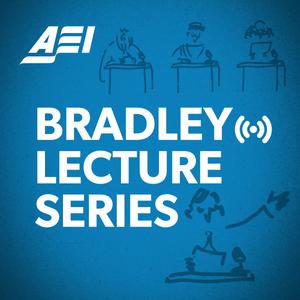 Bradley Lectures Podcast
Bradley Lectures Podcast
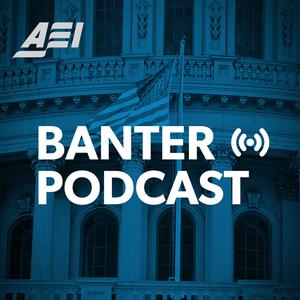 Banter: An AEI Podcast
Banter: An AEI Podcast
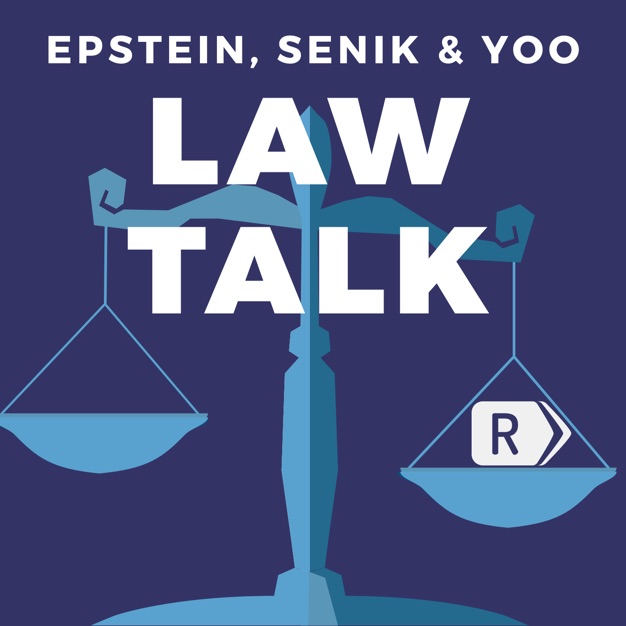 Law Talk With Epstein, Yoo & Senik
Law Talk With Epstein, Yoo & Senik
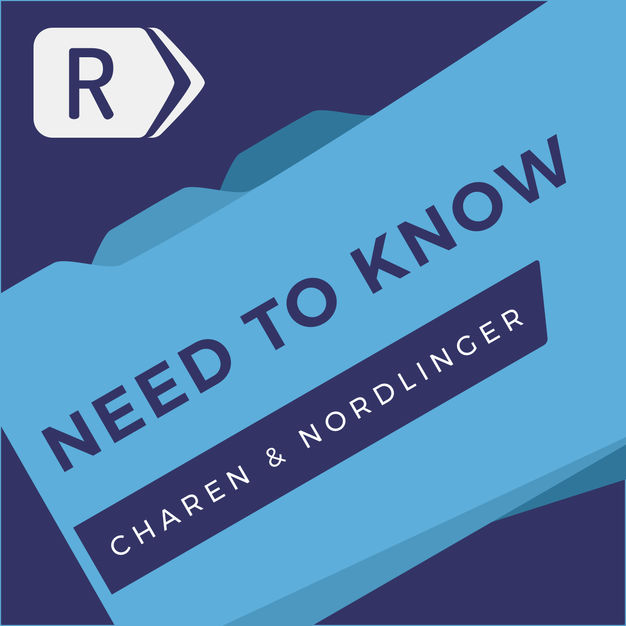 Need to Know
Need to Know
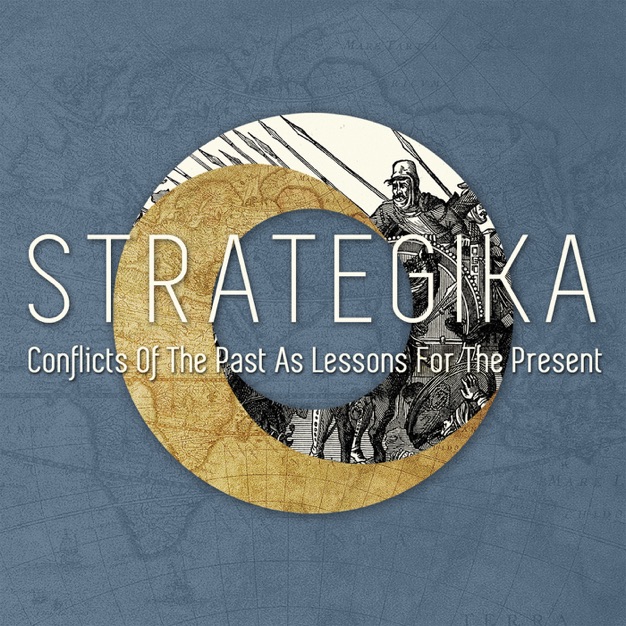 Hoover Institution: Strategika
Hoover Institution: Strategika